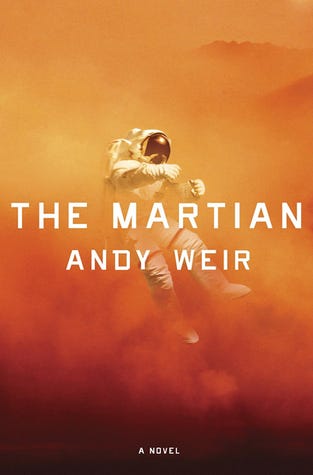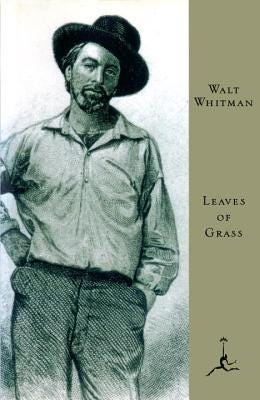Self-Publishing and the Quiet Power of Yes
The Road to Published Series
Posting this edition of The Road to Published free to all because I think it’s a necessary discussion, not only about my own journey, but for the many friends and fellows publishing on Substack and beyond.
And just a couple of reminders:
Tune in to the LIVE podcast The Daily Whatever this Friday, May 30th at 10 a.m. Eastern for what promises to be a lively conversation with my new fast friends and .
And and I will be talking Lamb, and writing, and serial novels this Sunday, June 1st at 2 p.m. Eastern on Substack LIVE.
Lamb publication day—June 3rd—is just around the corner, and I’ve been thinking a lot about how this might all go.
Pre-orders are dribbling in. 515 people have so far entered my Goodreads Giveaway for 50 free ebooks. The hope is that the 50 people who win a copy will read it and be moved enough to write a review, and that the remaining people will have been intrigued enough to think, “Oh, I didn’t win—but I’ll go ahead and buy it anyway.”
At the very least, they all have now seen my name and the name of my book. Drip, drip, drip, as they say in marketing.
But maybe this is all just me trying to set realistic expectations and not be too disappointed if/when it doesn’t make the Amazon New Release Bestseller list (much less the NY Times—by all accounts, you need serious backing for that.)
Self-published books. Well. In case you haven’t been keeping tabs, there are a few of them. Some are definitely being “written” by AI for people who’ve got no literary skin in the game and are just trying to make a buck. There are enough of these that there are also courses people pay money for just to learn how to do it.
Supply is outstripping demand, but there is demand, which is why people keep self-publishing.
The hope is that a certain debut author’s book will shine bright, gain a little momentum, and put said author onto some people’s radar—preferably readers.
“Keep an eye on this guy. He’s seen some things. He writes well, and there’s nothing else quite like it.” Here’s hoping!
Andy Weir, who wrote The Martian, was a self-published author. Obviously he has an agent now—you can’t get a big-budget Hollywood film deal negotiated without one— and a Big 5 publisher (Crown Publishing/Random House.) These things have happened. Andy Weir is what we would call a unicorn—so rare as to be almost a myth, except there really is an Andy Weir and he really is a successful science fiction writer.
Abandon hope all ye who enter here
Getting an agent in the first place, and then getting a publisher, and then getting onto a bestseller list are each like winning separate lotteries. Doing any of those things as a self-published author is like winning the lottery not by playing, but by chancing upon a discarded winning ticket in the gutter.
deals with this in more detail in his article “I'm Calling It: It's Officially Pointless to Try to Break In As a Writer Using Traditional Methods.”But is that even the hope anyway? To get an agent, to get a six-plus-figure deal with a traditional publisher, to get the rave reviews, sell the books, be a Bestseller, live happily ever after?
What I’m saying—in setting expectations, in talking about the realities of writing and publishing—is that if you actually know what is overwhelmingly likely, pinning your motivation on pie-in-the-sky hopes is no longer possible.
It is not a question of aspiring to become a bestselling novelist, but of finding the reasons to keep writing if/when the Writer’s Dream (like the American Dream) turns out to be little more than a mirage for you.
And yes, some of you will say, and I will agree: It happens every day. It is not impossible.
But so far, it has not happened to me, nor to the vast majority of writers. I queried sixty agents with my first completed novel, Watrspout—got some full manuscript requests too—but ultimately they were all No’s. My story did not read “And he got an agent on the first go-round,” and I quickly realized not only how common that is, but also how I didn’t really have an answer to the “And then what?” of the particular story I was living.
Walt Whitman self-published the first two editions of Leaves of Grass, and despite Ralph Waldo Emerson’s praise of the first, 1855 version, it was a critical and financial failure. He was fired from his position at the U.S. Department of the Interior because his work was deemed offensive. In later years, he was known to carry copies of his book in a basket around town to sell to anyone he could. He struggled to make a living for most of his life.
In the Internet Age, the stories of writers who don’t get picked up by an agent and trad publisher are finally trickling out—just in the last twenty years, out of a history of modern publishing that stretches back a couple hundred at least.
Sure, if you were in publishing, or an actual working author, or adjacent to any of these, you would have heard how—more often than not—early hopes were dashed, and how they worked to get better, how they pivoted, how they hustled and sometimes finally “made it,” and yes, how sometimes they just gave up.
But let’s set aside those last two—made it or gave up—and examine the hidden third way: the ones who just kept going, without ever making it but refusing to give up, just hustling and pivoting and chugging along ‘til death did them part.
Because not only is that the most likely scenario for the vast majority of us, it is also the hardest. Eking along, DIY editing, formatting, book covers—classes, workshops, writer’s conferences—a trickle here, a drop there—awards not won, books and articles not gone viral.
No Substack Post mention for you, no Featured Publication, no New Yorker review, #Nothing Rising.
Sorry. You’re OK—maybe even good, but not … well, let’s just say not connecting.
Virginia Woolf self-published all but one of her own books (her first, The Voyage Out, was published by her step-brother) and was nearly forgotten by history after her death in 1941 until the rise of feminist literary criticism revived interest in her work in the 1970s. Her sister Vanessa Bell was her cover designer.
It was only after I finally managed to finish my first manuscript, and began to research next steps—agents, query letters, synopses, and QueryTracker—that the word rejection even entered my awareness. Why say No to your dream before you’ve even started? It goes against everything that is American and holy.
Now, of course, having made some sense of those 60 agent rejections and written a second book without many more prospects than I started, I’ve come to realize what all writers before me—celebrated, forgotten, or both—have at some point also had to make sense of: In the arts, the only sure thing is rejection.
No. No. No. No ifs, no ands, no buts. Just no. No thank you. No way, Jose. Hell no. No means no. Still no. What part of “no” don’t you understand? No siree bob. Non, nein, nyet.
(If you have some time, listen to
and ’s Bad on Paper podcast interview with ( HERE ) about this exact thing! Andi and I are channeling the same muse at the 37 minute mark.)Enter the Quiet Power of Yes
After all this, there is only one thing that keeps me going—Saying Yes to myself.
I can’t hope myself into becoming a bestselling writer, but I can believe that there is always a way forward, another story, another book that only I can write. Can I do it? Can I believe that it’s in the doing that the real magic happens?
I can say “Hell yes!” as many times as I need to.
Yes to starting a newsletter.
Yes to setting my own deadlines for regular posts and meeting them week after week.
Yes to starting a Substack serial novel even though self-publishing it first all but annihilated the possibility of its being picked up by an agent or publisher.
Yes to starting a second newsletter to gather together all the queer folks of Substack who are Category-less and ignored.
Yes to reclaiming independent publishing from the traditional stain of that path and releasing that serial novel on my own imaginary imprint.
Yes to taking one more crack at that first unpublished novel.
Yes to pushing myself to start submitting more widely to journals and online publications.
And yes to starting a new novel, working title Raving.
Yes, yes, yes. If I wasn’t saying Yes to myself, I wouldn’t have opened my eyes to the possibilities that exist all around us.
I also wouldn’t have met all of you, and rejoiced in the chorus of Yes we are uttering to each other as we follow our dreams to happy destiny, or at least, a legacy of determination and resilience.
It’s a new day, friends. Here’s to Yes.











Yes yes yes. Yes to all of this. I have no accolades, not awards. No bestseller badge. No leaderboard position and no rising star. But I create anyway. Because the longing is all I have. And I’ll never stop. And of the writers I love the most here, only one is on a leaderboard — and I found exactly NONE of them from Substack features, leaderboards… thank you for this encouragement MTF 💛
I feel like you're channeling Molly in Joyce's Ulysses with all that YES at the end and I love it! saying yes to yourself is the important part especially when there is so much mental resistance in the writing process. I'm still in the querying agents phase (and yet everyone tells me it should be "easy" because I have a "platform" and yet it's not....) so I appreciate the candor and the peek behind the curtain. thanks, Troy! Yes!